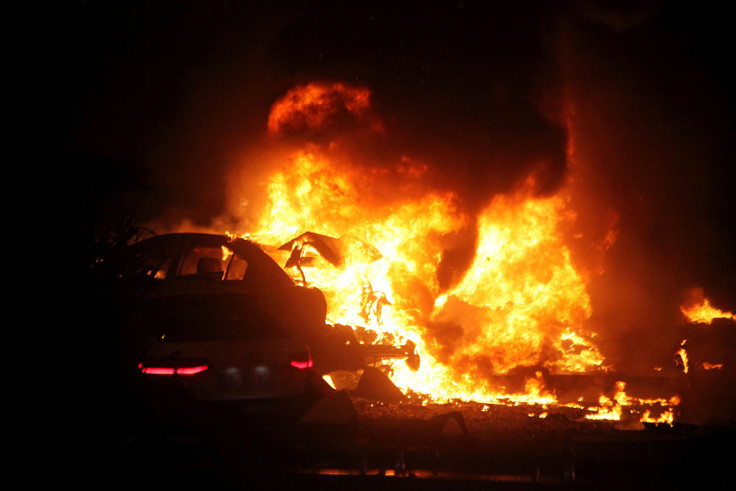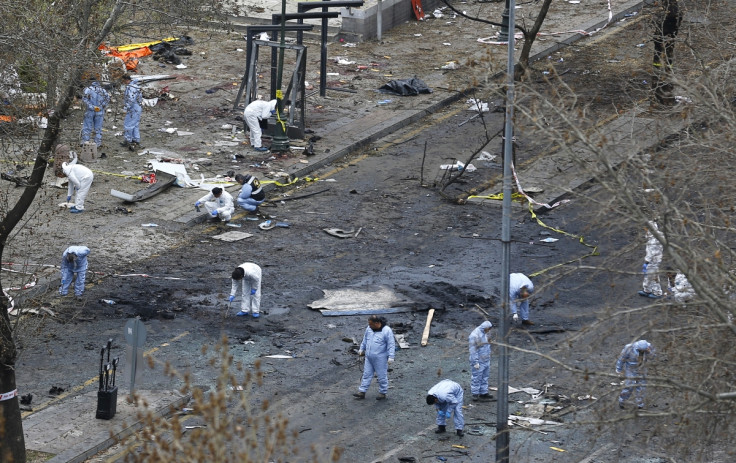Ankara attack: Female PKK bomber identified as Turkish air strikes target Kurdish militants in Iraq

Turkish authorities have identified one of the suspected attackers that killed more than 30 people in a bombing in Ankara as a female Kurdish militant. The woman, aged 24, was a member of the outlawed Kurdistan Workers Party (PKK), from the eastern city of Kars, security officials told Reuters.
Investigators believe she was one of two bombers that set off a massive explosion at a bus stop near Kizilay square in the Turkish capital. The blast killed at least 37 people and left at least 125 others injured according to the health ministry.
The woman was not immediately named. Police had earlier said they believed a female hand propelled by the blast to some 300m away from the attack site belonged to one of the bombers. Local media identified the suspect as university student Seher Cagla Demir, citing anonymous sources.
No group has claimed responsibility for the attack, the latest in a series perpetrated by Kurdish insurgents and Islamist militants in recent months. The PKK is known to have used suicide bombers before, but its separatist campaign has been predominately directed against the military and police, steering clear of civilian targets.
A splinter group, the Kurdistan Freedom Hawks (TAK) has instead claimed responsibility for a car bombing that killed almost 30 people in the same Ankara area in February, which Turkish authorities however blamed on a Syrian national with ties to the PKK and the Syrian Kurdish YPG militia. TAK, which maintains it has severed ties with the PKK, had also claimed a mortar attack that left an Istanbul Sabiha Gokcen airport worker dead in December.
Meanwhile on 14 March, Turkey carried out air strikes against Kurdish rebels in Iraq and arrested dozens of suspected militants in a crackdown that followed a deadly bombing in Ankara. The Turkish military said its warplanes pounded PKK positions across the border on 14 March, hitting ammunition depots, shelters and other targets at a series of locations in Northern Iraq.
The areas struck by the nine F-16s and two F-4 fighter jets that took part in the operation included the Qandil Mountains where the PKK has a strong presence. Security forces also carried out raids against PKK militants across the country Adana, as President Recep Tayyip Erdogan vowed to bring "terrorism to its knees."
Counter-terrorism police units detained an undisclosed number of suspects at numerous addresses in an overnight operation in Istanbul, local media reported. At least 36 more suspects were arrested in the southern city of Adana, according to the Dogan news agency.
Curfews were also imposed in the southern cities of Yuksekova, Nusaybin and Sirnak off the Iraqi and Syrian borders, in preparation for large-scale military operations in the area. Similar measures were earlier imposed in other areas of the restive south-east before the military moved inside urban areas to root out PKK militants.
The crackdown drew widespread criticism over allegations of large civilian casualties and human rights abuses. It came after the PKK, that has been leading a decades-long insurgency in Kurdish majority areas of the south-east, resumed its attacks last summer after a shaky truce with the government collapsed.

© Copyright IBTimes 2025. All rights reserved.






















